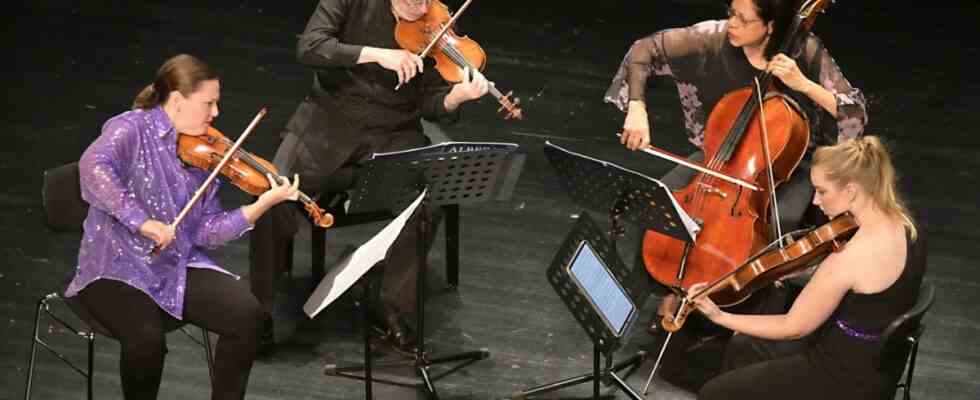The magic of the beginning was probably ambivalent. Anyone who hadn’t been to the Pullach community center for a concert for a long time was not exactly presented with the start of the new season on a romantic silver platter on Monday evening. Eleanor Alberga’s String Quartet No. 2 (1994) is anything but a sonorous embrace by the audience. The way the Juilliard String Quartet performed the 15-minute work by the Jamaican-British composer was of course so well-versed that the performance alone was astounding.
The famous string quartet from New York, which received the Grammy Award for its complete works in 2011, managed to unfold the rhythmic excitement of the work and the contrasting wealth of ideas in a smooth and concentrated manner. The timbres are far beyond the lyrical “Cantabile”, rather off-key and unappealing: the viola sometimes sounds like a didgeridoo, and the pizzicati jump almost grasshopper-like into the room. For some, this composition may blur the line between suggestive and unnerving, but the interpretation was impressive.
The Juilliard String Quartet, founded in 1946, is already known for its musical curiosity, as evidenced by numerous world premieres by American composers. There was no such thing on the program in Pullach, but neither are Benjamin Britten’s String Quartet No. 3 and Antonín Dvořák’s String Quartet No. 14 among the two composers’ best-known works. How the ensemble, in which Molly Carr (viola) joined after the death of longtime violist Roger Tapping in January 2022, implemented Britten’s expressiveness and multifacetedness was convincing.
Various forms of expression were touched on there until just before crossing the border to the sentimental, but always captured with virtuosity. In general: The way Areta Zhulla, Ronald Copes (both violin), Astrid Schween (cello) and Carr interacted was of almost perfect precision, homogeneity and phrasing intelligence. They also demonstrated this with Dvořák’s work after the break: sometimes romantically dabbed, sometimes floating like a dance, sometimes painfully wistful – whereby the Czech composer always manages to unfold a melancholy with his sound images that almost makes you happy. The fulminant final movement resulted in a few shouts of bravo, befitting its status.

